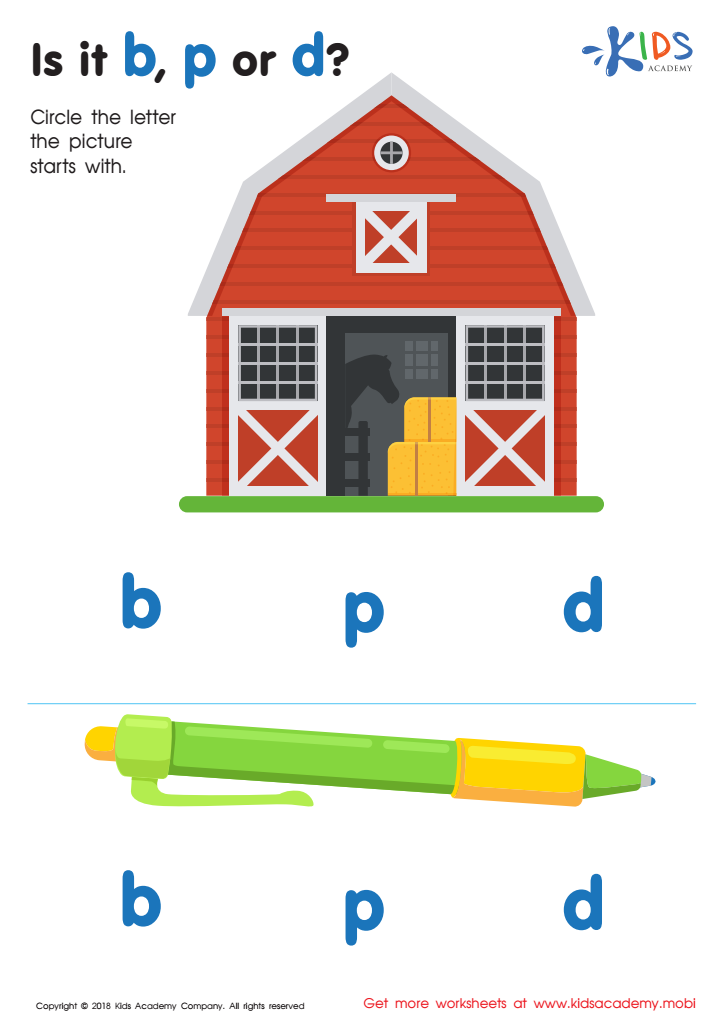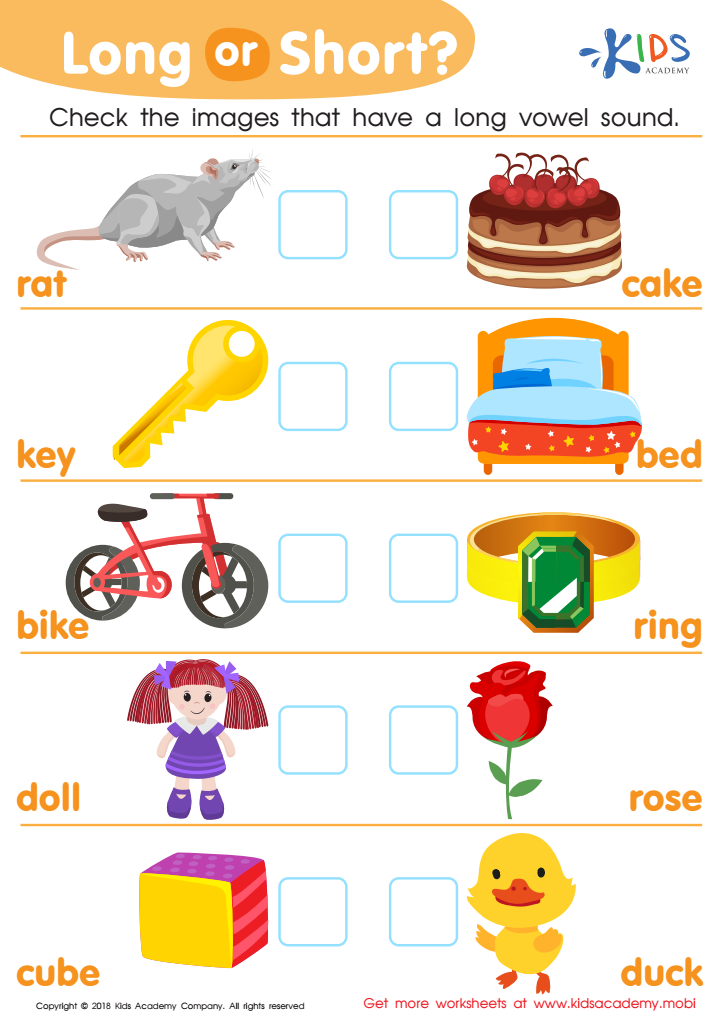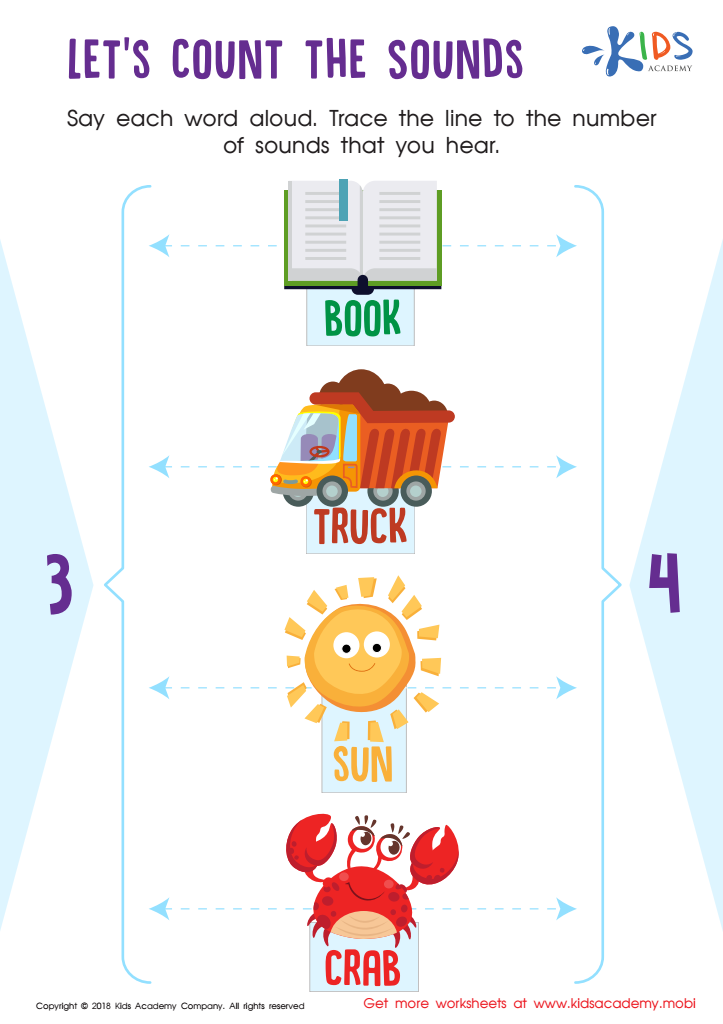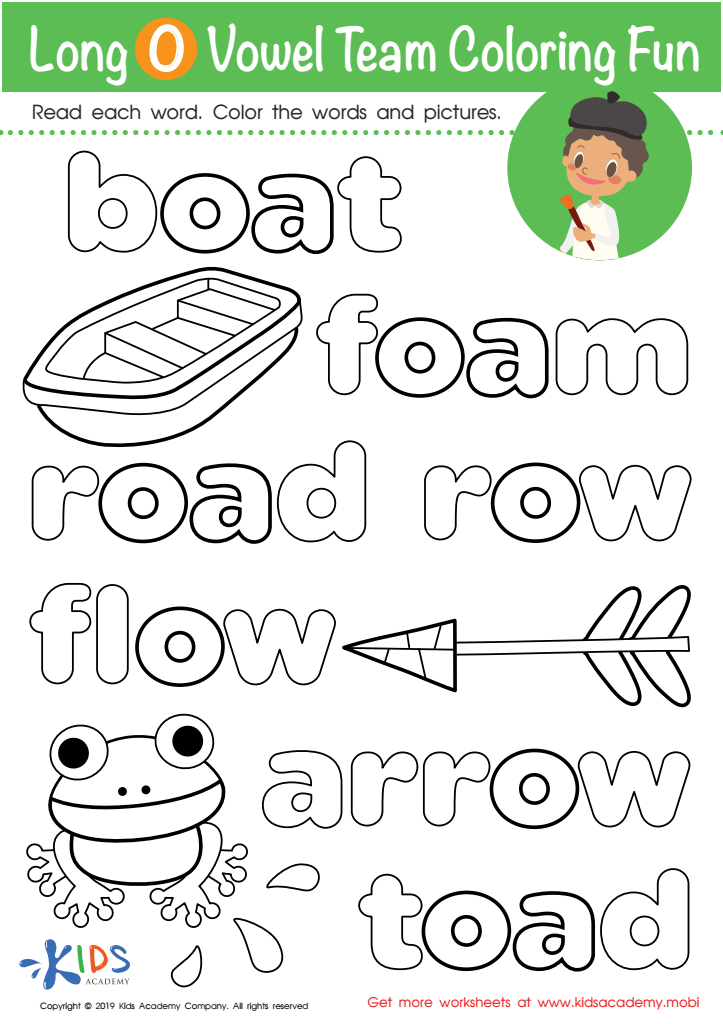Reading development Phonics Worksheets for Ages 3-6
4 filtered results
-
From - To
Enhance your child's reading journey with our engaging Phonics Worksheets designed for ages 3-6! These printable resources empower young learners by introducing essential phonics concepts through fun activities. Our worksheets focus on building letter recognition, sound correlation, and early reading skills, fostering a solid foundation for literacy. Ideal for home or classroom use, they encourage creativity and critical thinking while making learning enjoyable. With colorful illustrations and interactive exercises, these worksheets are perfect for both developing essential skills and sparking a love for reading. Start your child's reading development adventure today and watch them flourish as confident readers!


Is it b, p or d? Worksheet


Long or Short Reading Worksheet


Let's Count the Sounds Worksheet


Long O Vowel Team Coloring Worksheet
Reading development, particularly phonics, is crucial for children aged 3-6 as it lays the foundational skills necessary for literacy. During these formative years, children are most receptive to learning, making it imperative for parents and teachers to prioritize phonics instruction. Phonics teaches the relationship between letters and sounds, empowering children to decode words, which fosters independent reading. This skill not only boosts confidence but also enhances a child’s ability to comprehend the text.
Moreover, a strong grasp of phonics aids language development, enhancing vocabulary and communication skills. Early reading proficiency can also correlate with long-term academic success, as strong readers tend to perform better across subjects. Equipping children with phonics skills early increases their motivation and enthusiasm for reading, fostering a love for literature that can last a lifetime.
Additionally, parental engagement in phonics and reading activities strengthens the home-school connection and nurtures a supportive learning environment. Teachers and parents are instrumental in creating enjoyable and interactive strategies that make phonics learning fun, ensuring that children remain excited about the reading journey. Thus, investing time and resources in phonics at this early stage is vital for developing not only proficient readers but also lifelong learners.
 Assign to My Students
Assign to My Students



















